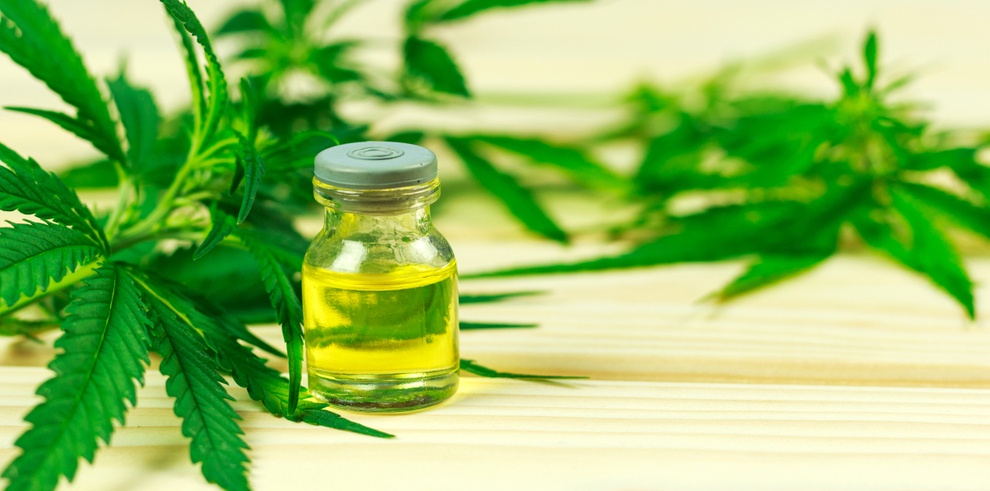



Get new exclusive access to healthcare business reports & breaking news




Cannabinoids are compounds extracted from the cannabis plant (hemp or marijuana). It interacts with the body’s endocannabinoid system, causing a range of psychological and physiological effects, such as relieving chronic pain, feelings of high, etc.
As of this writing, there are 80 to 100 cannabinoids found in the cannabis plant and around 300 non-cannabinoid compounds. Among these are two main cannabinoids: cannabidiol and tetrahydrocannabinol.
Cannabidiol (CBD) is a cannabinoid that can be extracted from cannabis and hemp plants. It’s sold in gels, extracts, gummies, oils, supplements, and more. Plus, it’s not psychoactive—it doesn’t produce the ‘high’ sensation.
Today, CBD is used as a recreational and medical drug. It’s believed to offset anxiety and depression symptoms, relieve chronic pain, alleviate neurological disorders, and ease diabetic complications.
Tetrahydrocannabinol (THC) is another prevalent compound in cannabis known for its psychoactive effects—the ‘high’ sensation. Although it’s popularly consumed by smoking, you can purchase it in gummies, tinctures, oils, capsules, and more.
If you’re looking for a shop that sells THC, choose a store with cannabis delivery so that you don’t have to waste time going to brick-and-mortar shops.
If you want to know more about the differences between CBD and THC, you’re on the right page. Read on to learn more.
CBD and THC have a similar molecular structure—they have two oxygens, 30 hydrogens, and 21 carbons. The difference lies in how these atoms are arranged, contributing to the varying effects on the body.
Although CBD and THC have different molecular arrangements, it doesn’t prevent them from interacting with your body’s natural cannabinoid receptors. This influences the production of neurotransmitters in your body, affecting sleep, stress, pain management, and other essential bodily functions.
Despite having similar molecular structures, CBD and THC have different psychoactive effects.
Both CBD and THC are psychoactive but in different ways. CBD doesn’t produce the feelings of ‘high,’ while THC does. Why is that so? The answer lies in the binding process.
THC binds to particular cannabinoid receptors responsible for producing euphoria or high feelings. These are called cannabinoid 1 receptors (CB1). According to a study, the effects can be more powerful if THC is inhaled instead of ingested.
This is the reason CBD doesn’t produce the high associated with THC. It’s difficult for CBD to bind with CB1 receptors—it needs THC to do so. Because of this, people taking CBD rarely experience a sense of euphoria or sedation.
Both CBD and THC possess similar medical benefits. But because CBD doesn’t produce a high, more people prefer it over THC.
CBD may help provide relief from several conditions, such as:
Nonetheless, more studies are warranted to conclude whether CBD can effectively treat these conditions.
On the other hand, THC may help provide relief from the following conditions:
Experts are looking at the possibility of relieving the following conditions using THC:
Nevertheless, more studies are needed to determine whether THC can effectively treat these conditions.
Most people can tolerate CBD, even in higher doses. Experts believe that the side effects associated with CBD are due to the chemical reaction between CBD and other medications. These may include the following:
On the other hand, THC may produce the following side effects:
THC-related side effects are due to the compound’s psychoactive effects.
Despite the side effects of CBD and THC, both compounds aren’t fatal. However, it’s worth noting that prolonged use of THC may be linked to chronic psychiatric effects.
Long-term exposure to cannabis might increase your risk of developing amotivational syndrome, a chronic psychiatric disorder characterized by low motivation. It also includes other mental health conditions, such as substance use disorder, anxiety, depression, and psychosis.
In America, Washington D.C. and 37 states have legalized the use of cannabis for medical purposes, including high levels of THC. Yet, it’s only permitted as long as it’s prescribed by a healthcare professional.
However, CBD and THC for recreational purposes are only legal in two territories, Washington D.C., and 19 states. So, before you buy cannabis-related products, it’s best to check your state’s laws to avoid legal penalties and hefty fines.
Both CBD and THC are stored in your body fat. Removing them completely from your body might take several days or weeks. This means you might get a positive result even if it’s already been a few weeks since the last time you took it.
Most drug tests focus on THC because of its prevalent psychoactive effects. Some CBD products may contain trace amounts of CBD—enough to make you positive for THC. And since CBD products don’t have a regulating body, you’ll never know how much THC they contain unless indicated.
Regardless, if your local state or place of employment hasn’t legalized the use of recreational or medical CBD and THC, it’d be best not to consume one or reduce your intake.
CBD can be extracted from either hemp or marijuana—although they’re technically the same kind of plant: cannabis.
Most people prefer hemp over marijuana due to its lower THC content—hemp has 0.3% or less (by dry weight), while marijuana has around 5-20%. In other words, hemp can’t get you high, but marijuana can.
If you’re looking for CBD but want to avoid the high effects of THC, choose one derived from hemp, not marijuana. Also, some CBD products might have higher THC content than what’s indicated on their label.
CBD and THC are the two main cannabinoids found the in the cannabis plant. Unlike THC, CBD doesn’t produce a high or sense of euphoria. Regardless, both have shown potential health and medical benefits, but more research is needed to draw a conclusion.
Nevertheless, it’s best to check your state’s laws regarding CBD and THC consumption before you purchase and consume one. This will help you avoid legal penalties.